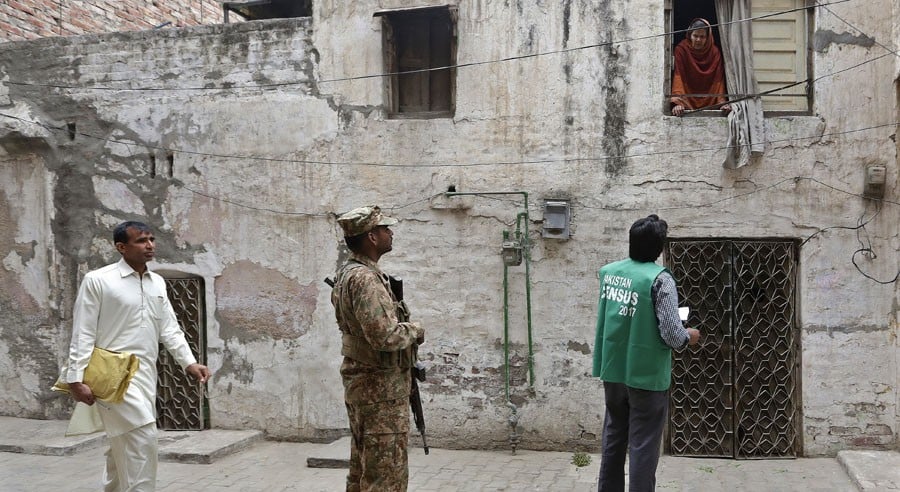
Migration, electoral seats, demographics based on ethnicity, distribution of resources, population density -- the census will give a pulse of the direction of change

According to the last national census, held in 1998, the total population of Pakistan was just over 132 million. 55.6 per cent of this population was found in Punjab, 23 per cent in Sindh, 13.4 per cent in Khyber Pakhtunkhwa, 4.9 per cent in Balochistan, 2.4 per cent in Fata and the remainder in Islamabad. Of this 132 million, nearly 65 per cent were concentrated in the rural parts of the country. The male-female ratio of the population was 52:48.
1998 was 19 years ago. Much has changed in Pakistan since then. The cities have grown; people have moved from rural areas to urban centres in search of jobs and a better life. Multiple operations against terrorists have sent a wave of displaced people from the affected areas inwards towards the rest of the country.
There have also been natural disasters, the earthquake of 2005 and the floods of 2010. All these may well have affected the demographic footprint of this country. There is also the no small matter of Afghan refugees settled in the country, and that segment of the population that still lives under the radar. But we won’t know till we find out.
"We are 10 years late, not 20," says Ali Cheema, Assistant Professor of Economics at Lahore University of Management Sciences (LUMS). "There are massive structural changes that have been happening in Pakistan, we have no clue about how migration patterns have been changing, it’s not just about the increase of population in a city but you learn about when people are migrating and where, so you can learn a lot about behaviour by analysing the census."
There is also the danger of under-reporting, which can directly impact the census and the outcomes associated with it. "There is migratory labour, which moves seasonally from one location to another, this population has been under-represented in previous censuses," says Cheema.
According to news reports, adequate arrangements have been put in place this time around to ensure that this segment of Pakistan’s society is not left out.
Read also: The questions remain
According to Cheema, from a political standpoint, the biggest fallout from the census would be the direct impact on electoral seats -- and there will be an issue on what basis will the delimitation take place. "The expectation is the weight of the urban areas will increase, and thus so will their seats, and consequently, seats from rural areas will decrease."
This, in turn, will have a direct effect on how political parties operate.
Currently, Punjab’s share of the population, as per the last census, is nearly 56 per cent. "If it goes down by 2 per cent, and Sindh and KP go up 1 per cent each, commensurately, Punjab’s seats will reduce in proportion to Sindh and KP," says Asad Sayeed, Senior Researcher at the Collective for Social Science Research.
Another area which will be affected by the census is demographics based on ethnicity, for example, the number of Pashtuns living in Balochistan, or the Mohajir population in Karachi. Within these divisions, there are further sub-divisions, primarily on the rural-urban divide, and more importantly perhaps, language.
The census will deliver vital information on all these subjects.
"This (information) will affect the distribution of resources, both to the local government as well as the spending patterns of the provincial government," says Sayeed.
Sayeed also believes that the reservations being put forward from Balochistan are mostly symbolic. "If the Afghans are counted, and Balochistan’s share increases, it will not have an effect at the Balochistan government/provincial level." On the other hand, if, for example, there is a population increase in the Pashtun belt, then the number of constituencies in the Pashtun belt would increase. "This would affect the balance in the Baloch assembly," he says.
However, the most important outcome of the census will be the absolute population of the provinces, as that will determine, to a large extent the provinces’ share of the National Finance Commission (NFC) Award.
"In all likelihood, the census is going to show a reduced share of Punjab and an increase in Sindh’s in the total population," says Khurram Husain, senior journalist. "Whether the adjustment will be large enough to result in a meaningful amount of money being diverted from Punjab to Sindh, that remains to be seen."
On a macro level, to Cheema, the census will give us "a pulse of what the direction of change has been in the economy and give us the opportunity to look at how population shifts have happened during the inter-census period, occupation patterns -- for purposes of planning and investments, will also be very rich information.
The national census in Pakistan is mandated by the constitution to be held every decade. The current census is scheduled to end on the 25th of May. To Cheema, the results of this census will put to rest "the wild estimates of what’s happening to cities, and density".
"We will suddenly know a lot more about Pakistan," he says. "Large-scale investments like CPEC will hugely benefit from a current census as you get a much better idea of what the underlying landscape is."
Lastly, but importantly, the data will also throw up crucial information on minorities. Already, for the first time, the transgender community is going to be included in the census. But ironically, the Sikh community, which has deep roots in the region, may be left out.
What’s needed now is that the census finishes without incident, is elaborate in its outreach, that it is accepted by all the provincial governments, and that the ensuing data is utilised for better resource allocation and planning for development.